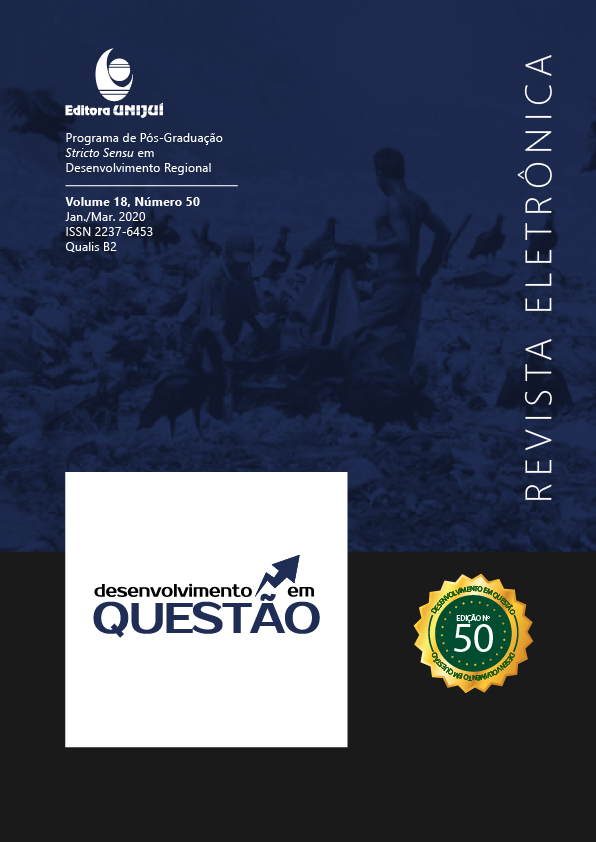Heterogeneidade e Transferência Intergovernamental: estudo da Zona da Mata – MG
DOI :
https://doi.org/10.21527/2237-6453.2020.50.55-71Mots-clés :
desigualdade regional, qualidade de vida, transferência intergovernamentalRésumé
O presente estudo tem por objetivo descrever a heterogeneidade existente na Zona da Mata Mineira e, ainda, verificar se a arrecadação do Fundo de Participação dos Municípios (FPM) pode interferir na qualidade de vida da região. Para tanto, foi realizada uma análise fatorial, agrupando as variáveis do estudo em três fatores e então, construído o Índice de Qualidade de Vida (IQV). Além disso, foi feita uma análise de regressão para verificar a interferência do FPM no IQV. Os resultados mostram que a região é considerada heterogênea e que o FPM pode interferir na qualidade de vida dos municípios. Apesar disso, os repasses podem ser considerados insuficientes para que os municípios assumam suas responsabilidades e se desenvolvam. Este estudo contribui, pois chama atenção para a região estudada, entendendo que devem ser reunidos esforços para que a região consiga ser menos heterogênea e mais igualitária, refletindo em avanços na qualidade de vida dos municípios e das pessoas que neles residem.
Téléchargements
Publié-e
Comment citer
Numéro
Rubrique
Licence
Ao publicar na Revista Desenvolvimento em Questão, os autores concordam com os seguintes termos:
Os trabalhos seguem a licença Creative Commons Atribuição 4.0 Internacional (CC BY 4.0), que permite:
Compartilhar — copiar e redistribuir o material em qualquer meio ou formato;
Adaptar — remixar, transformar e criar a partir do material para qualquer fim, inclusive comercial.
Essas permissões são irrevogáveis, desde que respeitados os seguintes termos:
Atribuição — Atribuição — os autores devem ser devidamente creditados, com link para a licença e indicação de eventuais alterações realizadas.
Sem restrições adicionais — não podem ser aplicadas condições legais ou tecnológicas que restrinjam o uso permitido pela licença.
Avisos:
A licença não se aplica a elementos em domínio público ou cobertos por exceções legais.
A licença não garante todos os direitos necessários para usos específicos (ex.: direitos de imagem, privacidade ou morais).
A revista não se responsabiliza pelas opiniões expressas nos artigos, que são de exclusiva responsabilidade dos autores. O Editor, com o apoio do Comitê Editorial, reserva-se o direito de sugerir ou solicitar modificações quando necessário.
Somente serão aceitos artigos científicos originais, com resultados de pesquisas de interesse que não tenham sido publicados nem submetidos simultaneamente a outro periódico com o mesmo objetivo.
A menção a marcas comerciais ou produtos específicos destina-se apenas à identificação, sem qualquer vínculo promocional por parte dos autores ou da revista.
Contrato de Licença (para artigos publicados a partir de 2025): Os autores mantêm os direitos autorais sobre seu artigo, e concedem a Revista Desenvolvimento em Questão o direito de primeira publicação.











